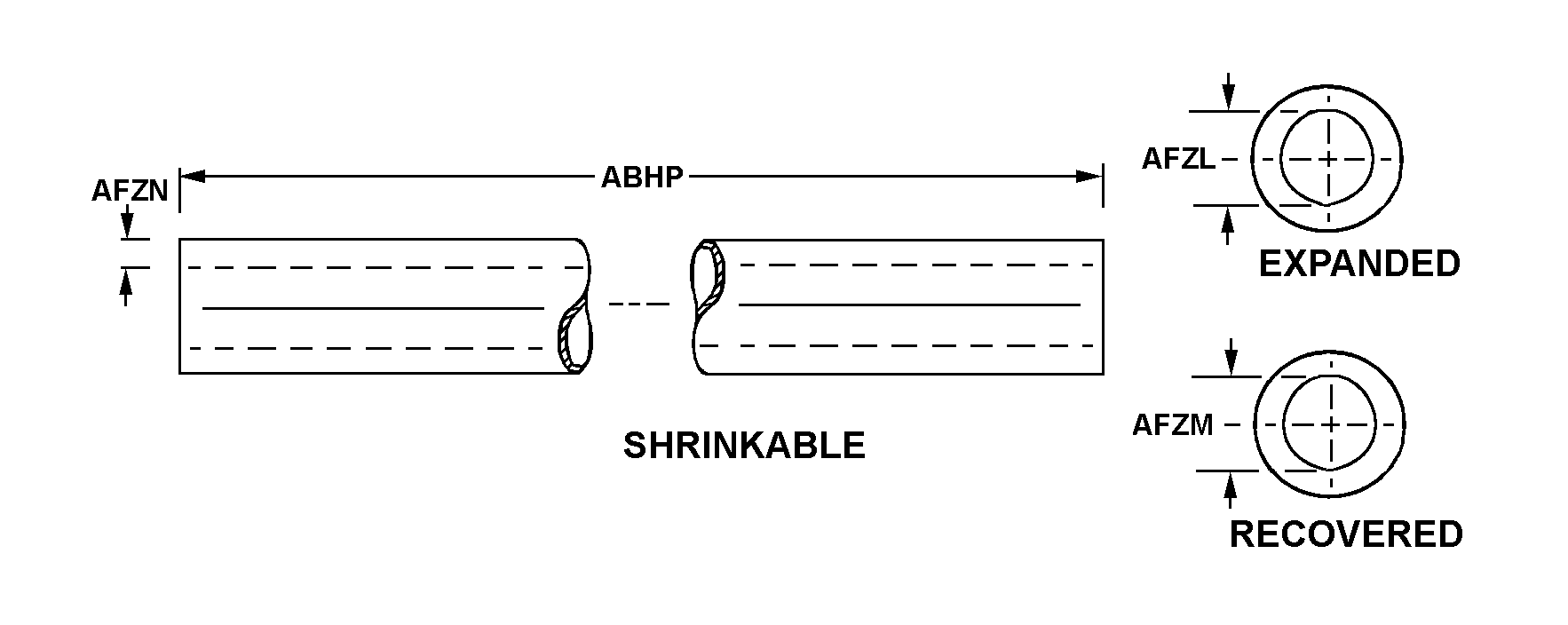5970000075275
Recovered Inside Diameter: Up to 0.031 inches, Expanded Inside Diameter: 0.063 mils.
Price Quote Get an up to date pricing and availability quote for this product. Order online or over the phone.
Quality Commitment
Serving our customers with quality and safety first.
- AS9120 Certified
- Audited supply chain
- ITAR Registered
- DDTC Registered
- HAZMAT Certified
- Customer service objectives
- Every product 100% inspected

5970-00-007-5275 Specification Set by the OEM (see RNCC code 3)
500.0 volts per mil /0.001 inch/
rubber, synthetic, MIL-R-46846, type 5
rubber synthetic
shrinkable
black
flexible
at least 1500 pounds per square inch
50.0
0.017in.
up to 0.031in.
at least 0.063in.
flame resistant and mildew resistant and solvent resistant and water resistant
-55.0 degrees celsius and 135.0 degrees celsius
v type
Cross Reference Parts Part numbers that meet the specification outlined on this page and set by the OEM
Identification Item Identification Guide (IIG) and Item Name Code (INC)

Definition Definition of approved item name (AIN): "INSULATION SLEEVING,ELECTRICAL"
A rigid or flexible tubing having uniform inside and outside diameters in the overall length. It is specifically designed to prevent any undesirable flow of current between conductors and other objects. Includes shrinkable type tubing, items in bulk and in specific fabricated lengths (cut to size). Excludes items not having rated electrical characteristics. Also excludes bushing, sleeve; cable nipple, electrical; conduit (as modified); insulation sleeving, electrical, special purpose; insulation sleeving, thermal; sleeve, marker, cable; sleeving, textile, electrical; tubing, glass; and tubing, nonmetallic.
5970-00-007-5275 Material Hazmat, Precious Metals, Criticality, Enviroment, and ESD
Indicates there is no information in the hmirs. The nsn is in a fsc in table ii of fed std 313 and a msds may be required by the user. The requirement for a msds is dependent on a hazard determination of the supplier or the intended end use of item.
Item does not contain precious metal.
The item does not have a nuclear hardened feature or any other critical feature such as tolerance, fit restriction or application.
Identification Codes
HMIC: Hazardous Material Indicator Code. A one position code that identifies a hazardous item.
PMIC: Precious Metal Indicator Code. A one position code which identifies items that have precious metals as part of their content. precious metals are those metals generally considered to be uncommon, highly valuable, and relatively superior in certain properties such as resistance to corrosion and electrical conductivity.
ESD: Electrostatic Discharge. Indicates if an item is susceptible to electrostatic discharge or electromagnetic interference damage. electrostatic discharge damage occurs when an accumulation of static electricity generated by the relative motion or separation of materials is released to another item by direct contact. electromagnetic interference damage occurs when an item comes into proximity with an electrostatic or magnetic field.
ENAC: Enviromental Attribute Code. Identifies items with environmentally preferred characteristics.
CRITL: Criticality Indicator Code. Indicates an item is technically critical by tolerance, fit, application, nuclear hardness properties, or other characteristics.






